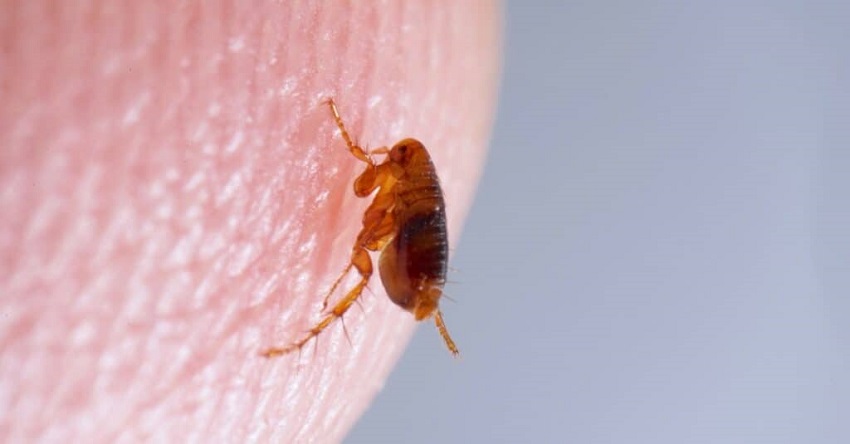
12 Aug How Long Do Fleas Live?
Fleas are tiny, wingless insects that are known for their ability to infest animals and humans, causing discomfort and health issues. If you’re dealing with a flea infestation, it’s important to understand the lifespan of these pests to effectively eliminate them from your surroundings. In this article, we will delve into the topic of how long fleas live, providing you with valuable insights on their life cycle and ways to control them.
Introduction to Fleas
Fleas belong to the order Siphonaptera and are external parasites that feed on the blood of their hosts. There are several species of fleas, but the most common one is the cat flea (Ctenocephalides felis). Despite their small size, fleas are notorious for their ability to reproduce rapidly and infest both animals and homes. Discover what do fleas look like.
The Flea Life Cycle
To understand how long fleas live, it’s crucial to grasp their life cycle. The life cycle of a flea consists of four stages: egg, larva, pupa, and adult. Each stage plays a significant role in the overall lifespan of a flea.
- Egg Stage: Female fleas lay their eggs on the host animal or in its environment, such as bedding or carpeting. Flea eggs are tiny, white, and difficult to spot. They usually hatch within 1 to 12 days, depending on environmental conditions.
- Larva Stage: Once the eggs hatch, they give rise to larvae. Flea larvae are small, worm-like creatures that avoid light and move deep into carpets, cracks, or other suitable hiding spots. They feed on organic debris and the droppings of adult fleas. The larval stage typically lasts for 5 to 18 days.
- Pupa Stage: When larvae are ready to enter the next phase, they spin a cocoon around themselves, entering the pupa stage. The cocoon provides protection and enables them to undergo metamorphosis. The pupa stage can last anywhere from 5 days to several months, depending on environmental conditions.
- Adult Stage: After completing the metamorphosis process, adult fleas emerge from the cocoon. They are now ready to find a host and feed on blood. Adult fleas typically have a lifespan of 2 to 4 weeks, but under favorable conditions, they can survive for several months.
Read more: Does Neem Oil Work on Fungus?
Factors Affecting Flea Lifespan
Several factors influence how long fleas can survive:
- Environmental Conditions: Fleas thrive in warm and humid environments, with temperatures ranging from 70 to 85 degrees Fahrenheit (21 to 29 degrees Celsius) and humidity levels of 70% or higher. These conditions are optimal for their survival and reproduction.
- Host Availability: Fleas require a host to feed on, reproduce, and complete their life cycle. Without a suitable host, fleas may not survive for long. Pets, such as cats and dogs, are common hosts for fleas, but humans can also be targeted.
- Grooming Habits: Animals with good grooming habits, like regular bathing and brushing, may be less prone to flea infestations. Grooming practices can help remove adult fleas and disrupt their life cycle, reducing their lifespan.
- Control Measures: Taking appropriate measures to control fleas, such as using flea treatments, vacuuming regularly, and washing bedding in hot water, can significantly reduce their lifespan and prevent infestations.
In conclusion, the lifespan of fleas varies depending on their life stage and environmental conditions. Fleas go through four distinct stages: egg, larva, pupa, and adult. While adult fleas generally live for 2 to 4 weeks, their overall lifespan can be influenced by factors such as temperature, humidity, host availability, grooming habits, and control measures taken.
Understanding the lifespan of fleas is essential in implementing effective flea control strategies. By addressing both the adult fleas and their eggs, larvae, and pupae, you can break the flea life cycle and eliminate these pests from your environment.
Frequently Asked Questions
How long can flea eggs survive without a host?
Flea eggs can survive for several weeks to months without a host. They can remain dormant until suitable conditions are present for hatching.
Can fleas survive in cold weather?
Fleas prefer warm and humid environments, but they can survive in colder temperatures if they find shelter and a suitable host. However, cold weather can slow down their development and reproduction.
Do fleas only infest pets?
While pets are common hosts for fleas, these pests can also infest humans. Fleas can bite and cause itching and discomfort to anyone they come into contact with.
Are fleas a health risk?
Fleas can transmit diseases and parasites to both animals and humans. They are known carriers of tapeworms, bacteria, and viral pathogens, making their presence a potential health risk.
Can I get rid of fleas without professional help?
In many cases, flea infestations can be successfully managed without professional help. Regular vacuuming, washing bedding in hot water, and using flea treatments can aid in controlling and eliminating fleas from your home.


Sorry, the comment form is closed at this time.